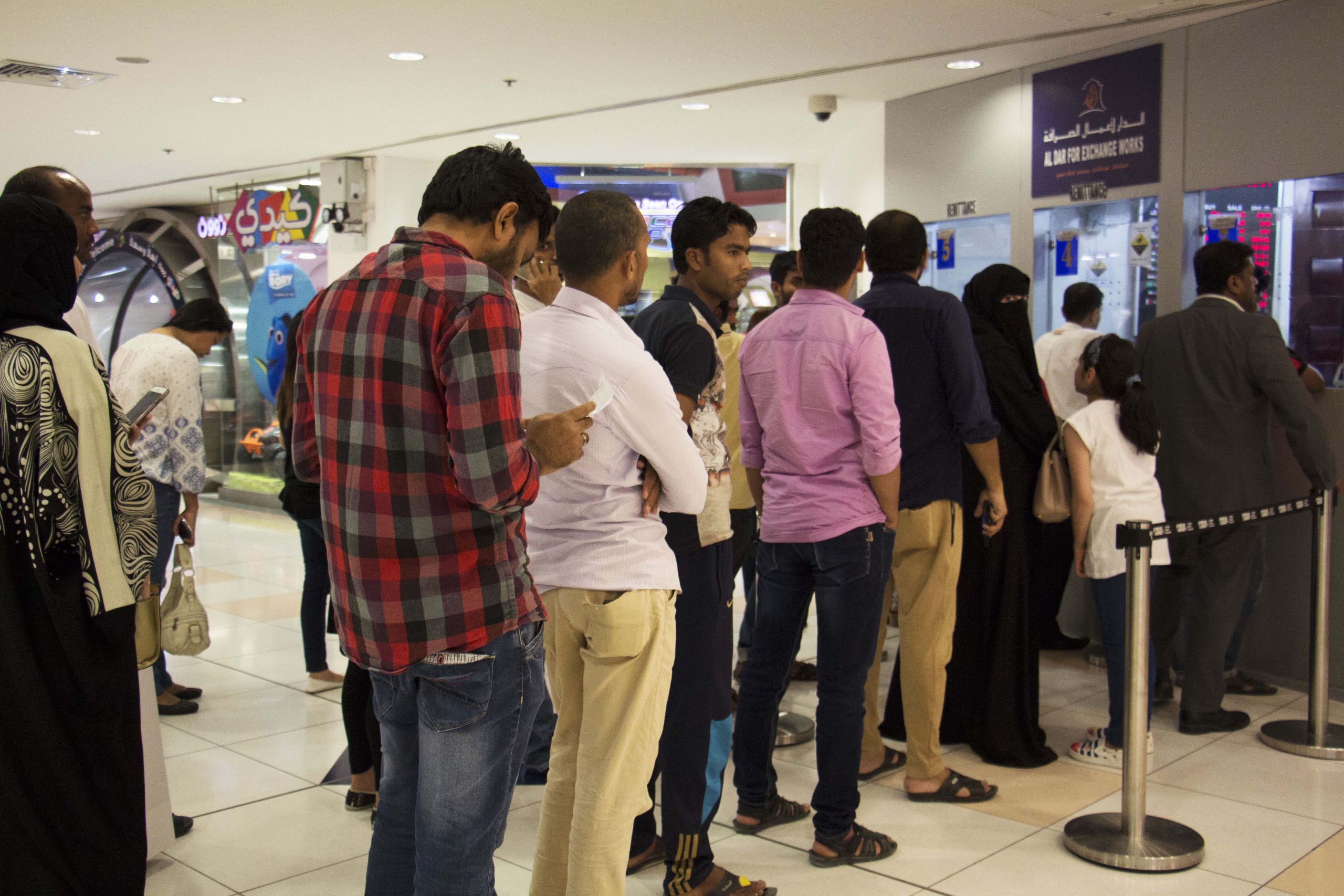
Many expats in Qatar are feeling richer this week in the aftermath of Thursday’s historic UK vote to leave the European Union.
The decision caused several major global currencies to tumble in value.
This has increased the purchasing power of many residents in Qatar, as one riyal now buys more in terms of British pounds, Indian rupees and Canadian dollars, among other currencies.
The excitement was noticeable over the weekend as many people rushed to foreign exchange shops to take advantage of the favorable rates.

Heading into the UK vote Thursday, one riyal bought 18.47 Indian rupees, according to a record of exchange rates. As the outcome of the referendum became clear, that reached a high of 18.74 Indian rupees.
“It’s better money because I’m getting more of it now,” Jaffer, an Indian limousine driver, told Doha News. “I can also send more money back home now because of the rate.”
What happened
Panic was the initial reaction for many investors on Thursday, who feared a Brexit would lead to new trade barriers and political upheaval, hampering economic growth.
George Osborne, the UK’s Chancellor of the Exchequer (finance minister), predicted it would lead to the first-ever “DIY recession.”
Seeking stability, many investors moved their money into safe havens such as US government bonds. This ended up boosting the value of the US dollar relative to many other currencies around the world.
In Qatar, the value of the riyal is pegged to the US dollar. This means that the value of the Gulf currency has also increased.
This is good news for many foreign nationals who are paid in Qatari riyals.

“The expats from India are getting a better rate,” said a manager at Al Mana Exchange, who asked not to be named.
He estimated that the number of Indians – who collectively make up Qatar’s largest expat community – visiting his business was up by approximately 25 percent over the weekend.
“We’re definitely seeing a spike in demand,” he told Doha News.
Unlike in the UAE, where one major currency exchange firm warned of possible shortages of British pounds, the Qatar-based manager said his business still had a sufficient supply of major currencies.
The bad news
It’s not all good news for Qatar, though.
The appreciation in the value of the US dollar – and, by association, the Qatari riyal – suddenly makes the country a more expensive place to visit.

Just ahead of Eid, a tourist from Canada, for example, would have to spend more loonies in order to pay for a hotel room or restaurant meal priced in Qatari riyals.
However, visitors from Qatar’s largest market – Saudi Arabia – are unaffected, since their currency is also pegged to the US dollar.
Elsewhere, investors on Qatar’s stock exchange were wincing yesterday as trading resumed in the Gulf state for the first time since the Brexit vote.
The country’s main index dropped more than 2.65 percent within minutes of markets opening before recovering some of that lost ground later in the day.

Boosted by a late-day rally, the Qatar Exchange closed Sunday down 1.24 percent.
Around the world, Reuters estimated that global stock markets lost $2 trillion in value on Friday after the UK vote.
Thoughts?







